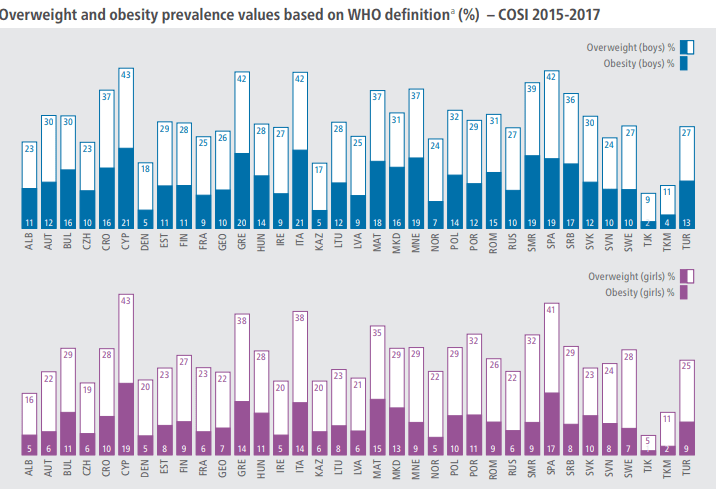According to the latest data from the World Health Organisation (WHO), Denmark has some of the lowest rates of child obesity in Europe.
In its recently-published Childhood Obesity Surveillance Initiative (COSI) report, the WHO revealed that 18 percent of Danish boys aged 6-9 were considered overweight, while 5 percent were deemed obese. The figure was similar for Danish girls of the same age group – 20 percent overweight and 5 percent obese.
“France, Norway, Ireland, Latvia and Denmark are among the countries with the lowest rates, ranging from 5 percent to 9 percent in either sex,” WHO wrote.
The data told a drastically different narrative in southern Europe, where there were far higher rates of child obesity. In Cyprus, Spain, Italy and Greece over 40 percent of boys aged 6-9 were overweight, while around 20 percent were considered obese. The stats were also high for girls of the same age group in those countries.
READ MORE: Lack of exercise and unhealthy diet main contributors to obesity
Lots of fruit and veg
The report, which collected data from a total of 38 countries, also revealed that Danish children ate fruit and vegetables more frequently that many of their European counterparts.
Some 60 percent of Danish kids said that they ate fruit every day, while 52 percent said they consumed vegetables on a daily basis.
Meanwhile, just 0.5 percent of kids in Denmark said they ate savoury snacks more than three times a week – by far the lowest out of the countries taking part. The 8 percent who said they drank soft drink containing sugar more than three days a week was also among the lowest.
Room for improvement
However, it was not all rosy reading for the Danes. They had a higher than average rate of not participating in any sports clubs, while they led the way in spending time in front of the TV/computer screen, with 91 percent watching at least 2 hours/day on weekend days.
And perhaps a bit surprisingly, not that may Danish kids walked or biked to school – only 36 percent.














